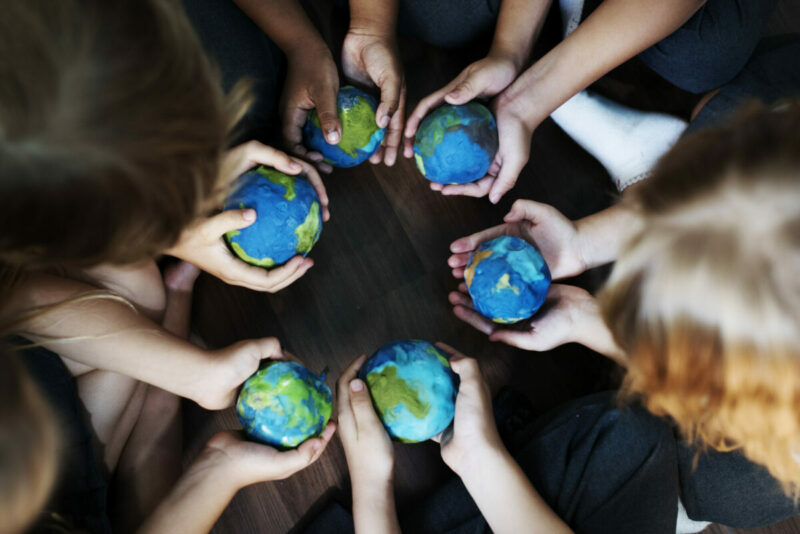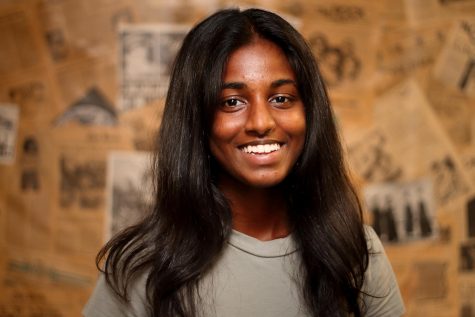In December 2006, during the midst of a devastating civil war in my home country of Sri Lanka, my parents and I climbed onto a cramped eight seater plane headed to Colombo, the capital city of Sri Lanka. The war forced us to flee from Jaffna, my birthplace, to avoid danger. My mother recalls trembling and sweating in fear, unsure if the Tamil rebels or the Singalese government, the two groups in battle, would shoot us down.
This civil war in Sri Lanka, which began in 1983, was the fight between the Tamil ethnic minority and the Singalese majority population to secure a state of independence for the Tamil people. Our only hope to leave the state of war was to get our VISA and leave for U.S. as soon as possible. Even 13 years after we left Jaffna, my mom still remembers the war as a nightmare and the U.S. as a safe haven. Two years-old at the time, I have no direct recollection of the events, but I still consider the war a vital part of my background. My family’s choice to leave Sri Lanka during the war allowed me to grow up in the safety of American society rather than battle-scarred Sri Lanka, but in doing so they sacrificed my would-be life in Sri Lanka. My younger sister, born in the U.S., only went to Sri Lanka when she was two, leaving her with fewer memories of the country than I have.
As I spent more time away from Sri Lanka, however, I realized being glued to what my life was, wouldn’t change the reality of my future. The U.S. offers so many more opportunities than Sri Lanka, including higher education standards, more steady jobs and the stable security of a developed country. The Sri Lankan part of me I value, but America can pave a clearer path for success. Now, my passport still bears the Sri Lankan crest, and my sister’s the American, but I feel just as much of a U.S. citizen as she is.
Yet sometimes, my close family members and friends in the U.S. will refer to the American society, including its people, as “them,” as if the political and social issues do not apply to us. For example, my Sri Lankan family spoke about the presidential election three years ago as if they were exempt from the politics simply for being Sri Lankan. In reality, myself and others of my ethnicity were and are all a union of citizens under the law of the U.S. government. The rift my fellow Sri Lankan-Americans created between Tamils and Americans by isolating the cultures made it seem like we were strangers in a foreign land, when, in reality, the U.S. was our home now. Their thought perspectives made me question my own cultural identity: Was I Sri Lankan or American? Could I be both?
Currently I am a Sri Lankan citizen, as my official identification documents state. I bear that title proudly, unashamed to represent an ethnic minority in the U.S. in a sea of diverse ethnicities. To be completely honest, however, I am not as knowledgeable about Sri Lanka as I wish I could be. When I moved to the U.S., I spoke Tamil as my first language, one of the two native tongues of Sri Lanka. As I grew older, I learned English in order to communicate with the rest of the society I lived in, and I spoke less and less Tamil. Now, I can still understand Tamil but only speak a limited amount with my family, which is more than my sister’s ability.
My parents can speak, understand, read and write in Tamil, as they were born and raised in Sri Lanka. While my English is more advanced technically, my parents are fluent enough as well, making them bilingual. It saddened me to realize I wouldn’t be as culturally diverse as my parents because they have knowledge from Sri Lanka and America, and it would be unlikely for me to find that same balance.
As much as I wish to maintain the cultural bond with the country I was born in, America is my home now, as well. Most of my memories have a background in the States. The U.S. is home to so many of my firsts, including learning to write, ride a bike and play tennis. I didn’t consider my American friends as “them” or my Sri Lankan friends as “us.” We were all just kids, trying to find our way in the world. Yes, it was obvious that some of my companions didn’t share my mocha colored complexion, but I felt no need to alienate them because of it. In my mind we were, and still are, all American citizens who have different traditions, foods and ideas.
As I have grown older, I still feel part of American society. The choices the American government makes impact my family along with my Armenian, Chinese and Caucasian neighbors. Whenever the U.S. makes a controversial decision, it becomes an issue to me, just like any other American citizen.
I began to realize that being a citizen has more layers than the literal definition allows, which is to have legal recognition as a person under national law. When I visit Sri Lanka, the sights, sounds and tastes become my own, and when I depart, I take a piece of culture back with me. I may eat traditional Sri Lankan food such as curry and a flatbread called roti at my house, but I can still enjoy deep-dish Chicago pizza to its full extent. I represent my birthplace in Sri Lanka through my lifestyle, including food, dress and traditions and also my home in the U.S., but finding the balance between my two worlds requires time to adjust. There is no “us” or “them” because I am a citizen of the world, just as much as I am Sri Lankan and American.
What does citizenship mean to you? Let us know in the comments below.


















































































Manjula Nathan • Dec 7, 2019 at 8:12 pm
A well thought through and well written article Anjali! Fantastic! You are an excellent writer and would be a great journalist! Congratulations!